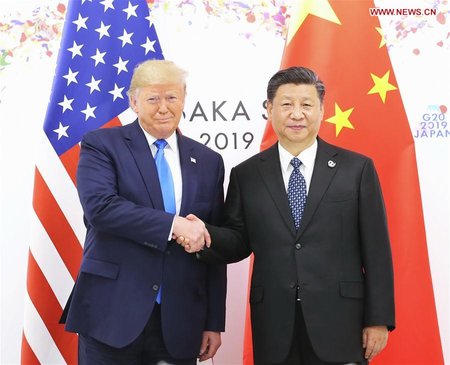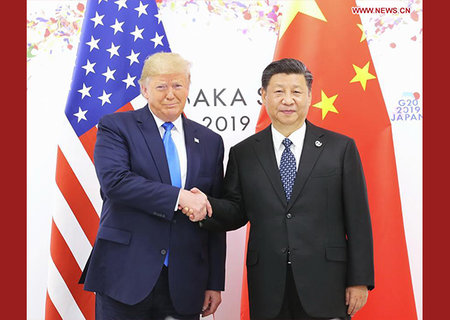2020/12/16 11:15 SERVICE
Treasured Lantern Lights the Way for Ethnic Dong Family
Yang Zhengyi, a 73-year-old veteran, rides back from the county seat on his red motorcycle. He has just had a brush cut there and looks fresh and cool in grey.
The old man is in good mood as his son and daughter-in-law who work in town will bring his 6-month-old grandson to visit and spend the weekend with him. His home is an excellent summer resort as dog days come close.
With streams running in the front and back, Yang's three-story old wooden house in the Yutou village of the ethnic Dong group gets cool in summer and warm in winter. The village in Tongdao County, central China's Hunan Province, has a history of more than 600 years.
Yang had one stuff he has treasured for decades. It was an iron lantern with a glass shade handed down to him by his father Yang Zaineng. The lantern is now being showcased at the county seat's Gongcheng Academy.
Gongcheng Academy is the venue, where 85 years ago, the leaders of the Communist Party of China (CPC) held an urgent meeting, which changed the course of an odyssey unequaled in the Chinese modern history -- the Long March.
From October 1934 to October 1936, the Chinese Workers' and Peasants' Red Army officers and soldiers, led by the CPC, left their bases in east China and marched through raging rivers, snowy mountains and arid grasslands to break the siege of Chiang Kai-shek's Kuomintang (KMT) party-led forces. Some of them marched as far as 12,500 km.
The military maneuver was a turning point in China's revolution, and the meeting was a pivotal event of the Long March since the Red Army abandoned its old route northward and decided to move westward from Hunan to Guizhou Province in southwest China.
In the 1930s, KMT troops came from time to time and press-ganged men in the village, Yang Zhengyi said. Bandits also came and harassed the villagers, who had to take their food and clothing and hide in fear in nearby mountains.
Having heard that an unknown army was coming, the whole village got hidden, except Yang Zaineng, Yang Zhengyi's father, before the Red Army officers and soldiers arrived. Yang the senior, then a strong man in his late 20s, stayed behind to protect his home village.
Yang the senior soon found that the Red Army soldiers acted differently: they left silver coins for the food and firewood they had taken from the village.
"My mom was a teenager at that time, and she saw that the Red Army soldiers kept the roots of the vegetables they had cut to grow again," said Yang Zhengyan, a 59-year-old woman of the Dong village. "When the KMT troops passed by, they uprooted the plants."
On one night, a Red Army officer asked Yang Zaineng to lead the way to Guizhou for them. He agreed and walked ahead of the line making gestures since the soldiers could not understand the local dialect he spoke.
They walked several dozen kilometers along winding mountain paths. Yang Zaineng was about to return when the officer stopped him and gave him a lantern, telling him to take it and light the way home.
It was a precious gift to the guide who had kept the lantern and passed it on to Yang Zhengyi -- his youngest son -- on his death, telling him to join the military when he grew up and be like the Red Army soldiers.
Yang Zhengyi fulfilled his father's last wish and became an artilleryman of the People's Liberation Army (PLA) at the age of 17. He returned to the Dong village and taught at a local elementary school after retirement in the late 1960s. Yang Biao, Yang Zhengyi's younger son, followed his footsteps and also joined the PLA.
Yutou village has become a popular tourist attraction. With its pleasant natural landscape, unique ethnic Dong architecture and handicrafts, along with the touching Long March stories, the village has fascinated visitors from all over the country.
"When my grandson grows up, I'll tell him the story of the lantern," Yang Zhengyi said.
(Source: Xinhua)
Explore further
| Changzhou Women's Federation | Xi, Trump Agree to Restart Ch |
| Xi, Trump Meet in Japan to Gu | Xi Urges BRICS to Strengthen |
| Lotus Flower Festival Kicks o | Xi Calls on G20 to Join Hands |










